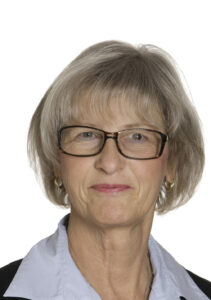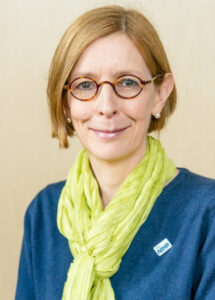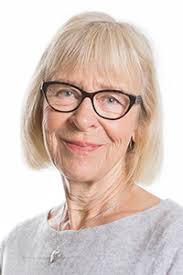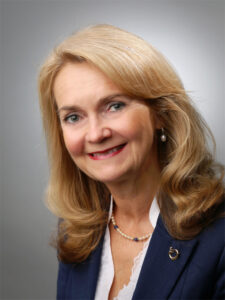Keynote speakers

Ingegerd Bergbom is a registered nurse, nursing teacher, doctor in medical science, associated professor in caring science at Åbo Akademi University, and associated professor in intensive care aligned to nursing at the University of Gothenburg. Bergbom’s doctoral thesis was finished in 1989, after which her research mainly has been concerned with intensive care, caring for severely ill or injured persons as well as with their rehabilitation, especially after high technology hospital inpatient care. Her research comprises quantitative as well as qualitative methods, mainly with a hermeneutic approach. Ingegerd Bergbom is appointed Honorary doctor at Åbo Akademi University.
Title of the presentation: Theory and theoretical perspectives in caring science, the past, the presence and the future
In 1960ths discussions and articles were published concerning the theoretical foundations for a developing nursing science. For example Dickoff, James and Wiedenbach discussed theory development in nursing, theory in a practice discipline, practice oriented theory and a what a theory is. This discussion started mainly in the USA but also engaged researchers and nurses internationally. Several theories and theory models and concepts were developed, during the following decades in preferably the Western world including the Nordic countries. Many of these theory models were influenced by theories and theoretical perspectives from other disciplines than nursing/caring but developed or adapted to nursing and caring science.
During the last 10-15 years the research within nursing science worldwide has mainly focused on phenomena in clinical nursing care, with a few exceptions in the some countries where theories and theoretical perspectives have been used and highlighted preferably in caring science. However, nowadays there is a tendency that the theoretical contribution to knowledge in nursing science and caring science is limited. Instead, fragments of theories from other disciplines are, often borrowed when reporting clinical research. An important question is therefore if unique nursing/caring theories are needed and thus if it is of interest to develop theories and theoretical perspectives for the discipline. Are theory relevant for practice and are practice relevant for theory? Moreover, issues concerning existing theories and conception models in caring science will be discussed as well as what kind of theories may be developed in the future, based on clinical and/or theoretical research.
 Fiona Cowdell, Professor of Nursing and Health Research and NIHR Knowledge Mobilisation Research Fellow, Birmingham City University, UK. As a registered nurse Fiona worked for many years in the National Health Service at senior levels both operational and strategic whilst developing close links with academia including posts as a Lecturer Practitioner and later as a Practice Development Consultant. Fiona’s research interests focus on skin health with particular reference to older people, humanisation and knowledge mobilisation. The work she undertakes is clinically relevant and directly applicable to practice
Fiona Cowdell, Professor of Nursing and Health Research and NIHR Knowledge Mobilisation Research Fellow, Birmingham City University, UK. As a registered nurse Fiona worked for many years in the National Health Service at senior levels both operational and strategic whilst developing close links with academia including posts as a Lecturer Practitioner and later as a Practice Development Consultant. Fiona’s research interests focus on skin health with particular reference to older people, humanisation and knowledge mobilisation. The work she undertakes is clinically relevant and directly applicable to practice
Title of the presentation: Living within ageing skin
Worldwide, the population is ageing with approximately 841 million people aged over 60 years in 2013, rising to over 2 billion in 2050. Maintenance of skin health in older age is an important but often neglected aspect of care. With age skin undergoes intrinsic and extrinsic degenerative changes which affect both function and appearance. At present, most ageing skin research focuses on either aesthetics or cosmetics, that is, appearance as opposed to function, or dermatological disease and skin breakdown. Understanding people’s experience of skin ageing as it is lived can enable sensitive approaches to promoting healthy skin and to care in general. By understanding the insider perspective, what it is like for individuals, a way to sensitise practice for more humanly sensitive care is offered.
Personal hygiene is one of many factors that contribute to maintaining skin health. Washing and bathing are generally private, solitary functions. Older adults may experience increasing difficulties in completing their usual personal hygiene activities independently and may require assistance. In most care settings, there is limited choice for residents about the gender of care provider. The INNOVATEDIGNITY work package ‘Gender and Care’ offers an opportunity to use innovative ethnographic and humanisation theory based research processes to engage with older people to enhance dignity in this most sensitive, but often routinised, aspect of care.

Margaretha Ekebergh is senior professor in caring science at University of Borås, Sweden. She has illuminated learning and reflection in health care education and caring practice. Her research has generated a theory of learning based in lifeworld philosophy and caring science; ”Learning encounters in caring contexts” which has three main concepts: lifeworld, narrative, reflection. From this theoretical viewpoint, her presentation will illuminate the importance of reflective learning and caring. Her mission is also to clarify the intertwining of learning and caring and how this intertwining process strengthens in caring practice.
Title of the presentation: The interaction between learning and caring – challenges and possibilities
One of the most important contributions to the sustainability of health care and wellbeing is the development of knowledge about the learning process and interactions between learning and caring in a caring context. Consequently, theory development within caring science didactics are of crucial importance.
This presentation illuminate issues concerning learning encounters in the caring contexts, which includes key concepts that relate to the learning process. Furthermore, the meaning of intertwining of learning and caring are clarified and how this process can be strengthened in caring practices to optimize the care of patients’ and provide opportunities for sustainable caring. The epistemological foundation for this intertwining process is a lifeworld theory. From this theoretical perspective, a model is developed which enable an implementation of Reflective Care and Learning in health care and educational contexts. The presentation highlights the model and reflects on the implementation process.
Keywords: lifeword, reflection, learning encounters, intertwining of caring and learning, reflective care and learning

Lisbeth Fagerström, Professor in Caring Science at the Faculty of Education and Welfare Studies and Rector of Åbo Academy University in Vaasa, Finland
Title of the presentation: Advanced Practice Nursing – A Key for Person-centred Care and a Sustainable Healthcare
The provision of healthcare services occurs within complex healthcare systems, and due to economic, technological, professional and client demands extensive changes are currently being seen. Traditional professional roles are being challenged and new complex models of healthcare services are being developed in many countries, including the Nordic countries. In my presentation the focus will be on how advanced practice nursing can contribute to a person-centered and sustainable healthcare system. The nurse-patient relationship and a person-centered perspective are the cornerstones of the Nordic model of advanced practice nursing. The eight central competency domains of the model and the theoretical perspectives of the Nordic model (health, holism, caring and ethos) will be presented and highlighted by clinical cases.
Lilli Sukula-Lindblom, MA, Theatre Academy Helsinki, Project leader Sol i minnet and Regina Santamäki-Fischer, PhD, Associated professor, Åbo Akademi University
Title of the presentation: ”Please help me! – I’m lost in thoughts and memories” How to connect to the person behind the illness and shape a meaningful everyday life in elderly care.
“Sol-i-minnet” www.soliminnet.fi (sun-in-the-memory)is a Culture-in-Healthcare-project in three nursing homes for elderly people with dementia in swedishspeaking Finland. The project involves a three-year training for the nursing staff at these homes. The goal is to develope care and treatment to be person-centered and make the good life possible for old people with memory-disorders. To implement it, the staff is educated by the project’s leaders; Lilli Sukula-Lind and Taina Semi, geroartist and author, in knowledge of person-centered care and trained with liberating and playful exercises in collaboration with artists in theater, music and art. In the process, the caregiver develops in their attitudes and are able to create structures and working methods that are inviting and supportive for the older people. This means that caring becomes a natural interaction, where playful and life-affirming activities are created in everyday life with volunteers and artists and where relatives are seen as a resource and partners. Well-being for the carer and the old person is improved. The Sol-minnet-projekt will be a model that can also be spread to other institutions for elderly. The project is being evaluated by researchers from the Åbo Akademi University. In a PhD project (Pamela Jokisalo), data from the project is collected to describe experiences of participation and measure the change to a person-centered way of working. Preliminary results indicate the contradiction in changing; accepting and hesitating, but also inspiring.